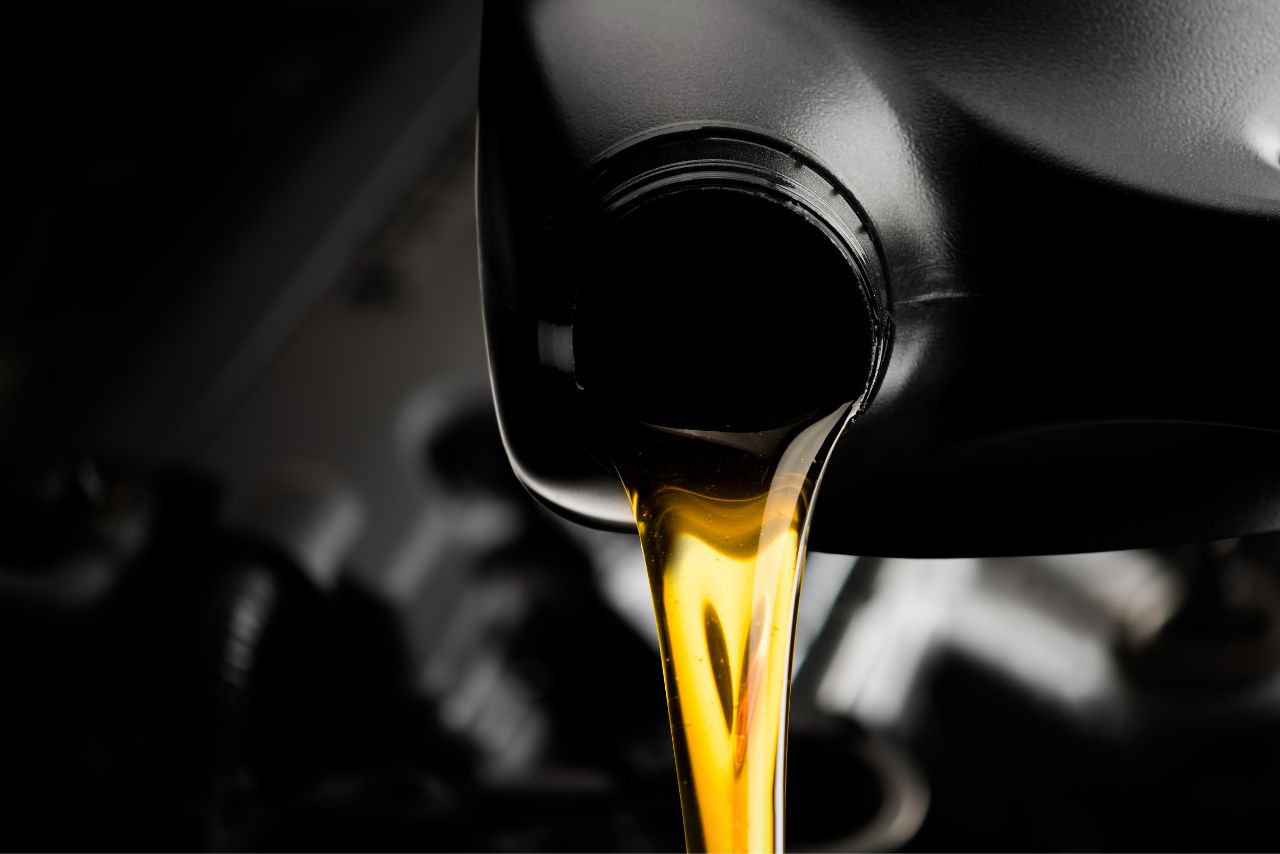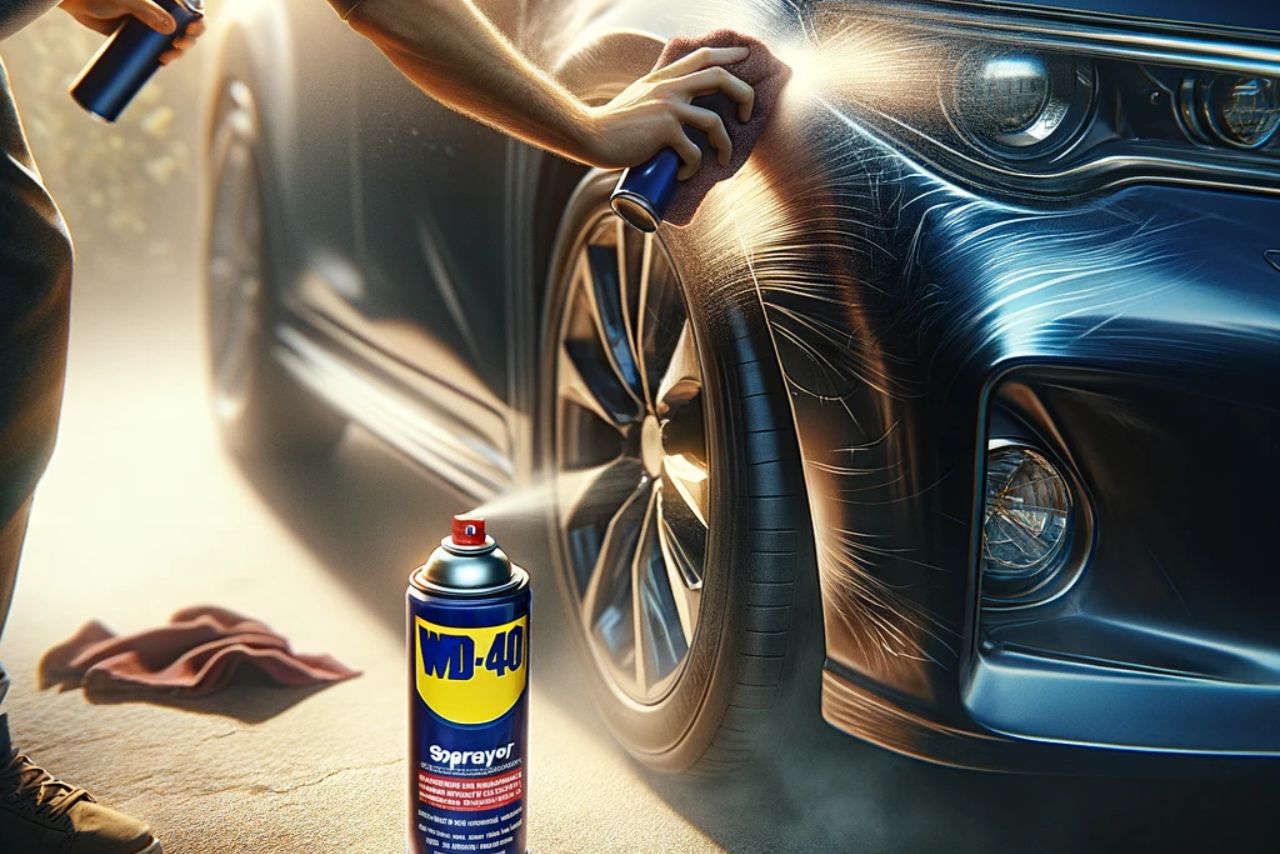Honda recommends using 5w-20 motor oil in the CR-V, but in some situations, it might be tempting to use 5w-30 oil instead.
The main difference between these two oils is their viscosity levels. 5w-20 is thinner and has a lower viscosity index than 5w-30, which means it flows more easily, especially at low temperatures.
However, before deciding to use 5w-30 oil instead of 5w-20, there are some important factors to consider. Using the wrong type of oil could lead to engine damage, void your warranty, and even impact your vehicle’s performance.
That’s why it’s crucial to understand why your Honda CR-V requires a specific type of oil and what would happen if you decide to use a different one. In this article, we will cover Can I Use 5w30 Instead of 5w20 in My Honda CR-V?
The answer is No, you should not use 5W-30 instead of 5W-20 in your Honda CR-V. The manufacturer recommends using 5W-20 oil for optimal engine performance and efficiency. Using a different viscosity may adversely affect the engine’s performance, fuel economy, and could potentially void your warranty.
Table of contents
Understanding Engine Oil Viscosity:
Engine oil viscosity is an essential factor in maintaining the performance and longevity of your Honda CR-V’s engine.
Viscosity refers to the oil’s resistance to flow and shear, and it is designated using two numbers, such as 5W-20 or 5W-30.
The first number, preceded by the letter “W,” stands for Winter and indicates the oil’s viscosity at low temperatures. The lower the number, the easier it flows in cold weather, which is crucial to ensure proper lubrication during engine startup.
The second number represents the oil’s viscosity at high temperatures, typically measured at 100 degrees Celsius.
It is essential to use the recommended viscosity grade for your Honda CR-V. In the owner’s manual, Honda specifies 5W-20 for most CR-V models, except for some older models that require 5W-30.
Using a different viscosity grade can negatively impact engine performance, fuel efficiency, and emissions.
Here are some things to keep in mind about engine oil viscosity:
- Using a lower viscosity oil than recommended may cause excessive wear on engine parts.
- Using a higher viscosity oil than recommended can reduce fuel efficiency and increase engine deposits.
- In colder regions, it may be tempting to use a higher viscosity oil due to the misconception that it provides better protection. However, higher-viscosity oils take more time to circulate during startup and can cause wear and tear on the engine.
- The recommended oil viscosity may vary depending on the engine condition, driving habits, and environmental factors. Consult with a qualified mechanic if you have questions or concerns.
In summary, understanding engine oil viscosity is crucial for maintaining the health of your Honda CR-V’s engine.
Always follow the recommended viscosity grade specified in the owner’s manual to ensure optimal performance and longevity.
| Using 5W-20 | Using 5W-30 | |
|---|---|---|
| Cold weather performance | Better | Worse |
| Hot weather performance | Same | Better |
| Fuel efficiency | Better | Worse |
| Engine deposits | Less | More |
| Manufacturer’s recommendation | Yes | Only for certain older models |
Can 5W30 Oil be Used in Place of 5W20 in Honda CR-V?

One of the most frequently asked questions regarding Honda CR-V oil changes is whether 5W30 oil can be used instead of the manufacturer-recommended 5W20 oil. Here are some points to consider:
- The owner’s manual for Honda CR-V recommends 5W20 oil for the best fuel economy and engine protection in most conditions.
- Using 5W30 oil in place of 5W20 might affect the fuel economy and engine performance, particularly during cold weather. The thicker viscosity of 5W30 may cause the engine to strain during start-up, and could potentially result in higher oil consumption.
- In certain specific circumstances, using 5w30 oil in place of 5w20 might be okay. For example, when driving in high-temperature conditions or with heavy loads, or when towing a trailer. Refer to the owner’s manual for more information.
Here is a table that shows a quick comparison between 5W20 and 5W30 oils:
| 5W20 | 5W30 |
|---|---|
| Better fuel economy | Slightly lower fuel economy |
| Better engine protection in most conditions | Slightly lower engine protection in some situations |
| Suitable for normal driving conditions | Suitable for specific situations such as cold temperature driving or towing a trailer |
At the end of the day, it is recommended to follow the manufacturer’s guidelines for oil viscosity and change intervals to maintain the long-term health and performance of your Honda CR-V engine.
Check the owner’s manual or with a trusted mechanic for any concerns or questions.
Possible Impacts of Using 5W30 Oil in a Honda CR-V:
If you are considering using 5W30 oil instead of 5W20 oil in your Honda CR-V, there are a few possible impacts you should be aware of:
- Fuel efficiency: Using a heavier oil, such as 5W30, may lower your fuel efficiency slightly. This is because the engine will have to work harder to move the thicker oil through its system.
- Engine performance: The engine may not perform as well with 5W30 oil because it is not explicitly designed for heavier oil. The engine may also experience increased wear and tear, as the thicker oil may not provide adequate lubrication for the engine.
- Engine wear and tear: Using 5W30 oil in a Honda CR-V that requires 5W20 oil may cause increased engine wear and tear because the heavier oil may not properly flow through the engine’s smaller passages. Over time, this could result in damage to your engine and ultimately increase the likelihood of costly repairs.
- Warranty concerns: Using a different type of oil than what is recommended by the manufacturer may void your vehicle’s warranty. If any issues arise related to your engine or oil, you may be responsible for the expenses to fix them.
It is important to note that these impacts may not be immediately noticeable, but can compound over time and cause significant damage to your vehicle.
It is highly recommended that you always use the recommended type of oil for your car to ensure optimal performance, reliability, and longevity.
| Impact | Explanation |
|---|---|
| Fuel Efficiency | Slightly lower fuel efficiency due to the engine working harder to move the thicker oil through the system. |
| Engine Performance | The engine may not perform as well, and may experience increased wear and tear due to inadequate lubrication. |
| Engine Wear and Tear | Increased wear and tear due to the thicker oil not properly flowing through the engine’s smaller passages. |
| Warranty Concerns | Using a different type of oil than recommended by the manufacturer may void your vehicle’s warranty. |
Manufacturer’s Recommendations for Engine Oil Use in Honda CR-V:

When it comes to choosing the right engine oil for your Honda CR-V, it’s important to refer to the manufacturer’s recommendations.
Honda recommends using 5W-20 engine oil for most of its vehicles, including the CR-V. However, if you’re unable to find 5W-20 oil, you may use 5W-30 oil instead.
It’s important to note that using a different viscosity oil than recommended by the manufacturer can affect the performance and longevity of your engine.
Honda recommends sticking to the recommended viscosity grade to ensure optimum engine protection and performance.
Here are a few more important things to keep in mind regarding Honda’s recommendations for engine oil use in the CR-V:
- Honda recommends using only high-quality detergent oil labeled with the API Certification Seal.
- The API Certification Seal indicates that the oil meets the minimum requirements for performance and protection of an engine.
- Honda also recommends using oil that meets the ILSAC standard GF-5 or API SN for your Honda CR-V.
- Using oil that does not meet these standards may lead to reduced engine life or improper engine operation.
Overall, following Honda’s recommendations for engine oil use in your CR-V is crucial for maintaining and extending the life of your vehicle’s engine.
Advantages of Using Recommended Engine Oil for Honda CR-V:
Using the recommended 5w20 engine oil for your Honda CR-V has several advantages over using 5w30, including:
- Improved Fuel Efficiency: Honda CR-V recommends the use of 5w20 engine oil to boost fuel economy. According to a report by the U.S. Department of Energy, using the recommended engine oil can improve fuel efficiency by up to 2 percent over using thicker oils.
- Better Engine Protection: 5w20 engine oil is designed to provide better engine protection by reducing wear and tear on engine components. Using 5w30 engine oil can lead to reduced engine performance and increased engine wear in the long run.
- Compliance with Warranty Requirements: Honda recommends using the recommended 5w20 engine oil in the CR-V to meet warranty requirements and ensure optimal performance. Failure to use the recommended oil may void your vehicle’s warranty.
- Reduced Engine Noise: 5w20 engine oil has a lower viscosity than 5w30, which means it flows more smoothly through the engine, resulting in reduced engine noise and smoother performance.
Using the recommended 5w20 engine oil for Honda CR-V has several advantages over using 5w30.
It provides improved fuel efficiency, better engine protection, complies with warranty requirements, and reduces engine noise.
It’s always recommended to follow the manufacturer’s guidelines and use the engine oil that’s recommended for your vehicle’s make and model.
How to Choose the Right Engine Oil for Your Honda CR-V?
- For best performance, follow the manufacturers recommendations in your vehicle owner’s manual.
- Formulated for longer drain intervals
- Helps prevent build up that can cause rust and corrosion
- Reduces friction for less engine wear
- High resistance to viscosity and thermal breakdown
- Helps reduce exhaust emissions
Choosing the right engine oil can be a daunting task, especially for those who are not familiar with the different types available.
Here are some factors to consider when choosing the right engine oil for your Honda CR-V:
1. Check Your Owner’s Manual:
The first step in choosing the right engine oil for your Honda CR-V is to check your owner’s manual.
The manual will provide you with the recommended oil type and viscosity that will work best with your engine.
2. Consider Weather Conditions:
Weather conditions play a key role in determining the right engine oil for your Honda CR-V.
If you live in an area with extreme temperatures or harsh weather conditions, you may need to choose an engine oil with a higher viscosity, such as 5W30, to ensure that your engine remains lubricated.
3. Look for Top-Quality Brands:
When choosing the right engine oil for your Honda CR-V, it is important to look for top-quality brands to ensure the best performance and protection for your engine.
You may also want to consider synthetic engine oils, which offer improved wear protection, longer oil life, and better fuel economy compared to conventional oils.
4. Consult with a Professional:
If you are still unsure about the right engine oil for your Honda CR-V, it is always a good idea to consult with a professional mechanic or your local dealership.
They can help you choose the right engine oil based on your driving habits, local weather conditions, and other factors specific to your vehicle.
| Factor | Considerations |
|---|---|
| Recommended oil type and viscosity | Check owner’s manual |
| Weather conditions | Extreme temperatures may require higher viscosity |
| Top-quality brands | Look for reputable brands and consider synthetic oils |
| Consult with a professional | A mechanic or dealership can provide expert advice |
Switching from 5W20 to 5W30 Oil in Honda CR-V – Things to Consider:
If you are considering switching to 5W30 oil in your Honda CR-V, there are a few important things to keep in mind before making the change. Here are some key points to consider, If you wants to switch then you can use this oil:
- Motul’s expertise addresses specific industrial constraints with high proficiency and innovative solutions.
- Our Passenger Car Product range protects and takes care of your vehicle for the duration of its life cycle.
- From the 8100, our 100% Synthetic oil line of products, to Coolants, Brake fluids, and Transmission lubricants, Motul offers you a wide choice of products to keep your car running.
- Passion is what unites lovers of engineering to their machinery, the same passion that Motul puts into innovation.
- Motul has developed high performance metalworking fluids and lubrication products to address the highly demanding needs from the growing worldwide industrial business world since 1989.
- Manufacturer recommendations: The first thing to check is your Honda CR-V’s owner’s manual. This will tell you what weight and type of oil the manufacturer recommends for your specific vehicle.
- Fuel economy: While 5W30 oil may offer better engine protection at cold weather, it may negatively impact your fuel economy. Thinner oils tend to flow more easily, which can reduce friction and improve fuel efficiency. So, if you switch to a thicker oil, like 5W30, you may notice a decrease in your vehicle’s fuel economy.
- Warranty coverage: Switching to a different weight or type of oil could affect your vehicle’s warranty coverage. If you are still under warranty, it’s best to consult with your dealer or mechanic before making any changes to your vehicle’s oil type or weight.
- Climate: Your climate plays a significant role in determining what type of oil you should use. If you live in an area with hotter temperatures, 5W30 oil may be more appropriate as it provides better protection at high temperatures. For colder climates, 5W20 is usually recommended as it flows more easily in cold temperatures.
- Price: The cost of 5W30 oil may be slightly higher than 5W20, so keep this in mind when making your decision.
Overall, if you do decide to switch to 5W30 oil, ensure it meets the API (American Petroleum Institute) certification for your engine’s needs, and monitor your vehicle’s performance, fuel economy, and oil levels regularly.
Expert Tips for Maintaining Your Honda CR-V Engine:
Keeping your Honda CR-V engine in good condition is essential for ensuring optimal performance and extending its lifespan. Here are some expert tips that can help you maintain your engine properly:
1. Regular Oil Changes:
Oil is the lifeblood of your engine, so it’s important to change it regularly. Refer to your vehicle owner’s manual to find out how often you should change the oil, which is usually every 5,000 to 7,500 miles.
Using the recommended grade of oil is also important to ensure that your Honda engine stays in good condition. For instance, if your manual recommends using 5w20 oil, do not use 5w30 oil instead.
2. Check and Change Filters:
Ensuring that your engine gets clean air and fuel is critical for its performance. Therefore, check your air filter regularly and replace it if it is dirty or clogged.
Similarly, the fuel filter replacement should be done as per the service schedule of your Honda CR-V.
3. Maintain Proper Tire Inflation:
Maintaining the appropriate tire pressure is essential for ensuring fuel efficiency, ride comfort, and safety.
Refer to your vehicle owner’s manual for the recommended tire pressure, and ensure that your tires are properly inflated at all times.
4. Follow Proper Maintenance Schedule:
Following the maintenance schedule outlined in your vehicle owner’s manual is critical for keeping your engine in top condition.
Honda provides a specific schedule for every model and year of Honda CR-V. Make sure to follow this schedule for the best results.
5. Listen for Unusual Noises:
If you hear any unusual sounds from your engine, it’s important to investigate them promptly.
Metallic sounds like grinding, knocking, ticking, or clattering often indicate serious problems, which if left untreated could cause significant damage to your engine.
By following these expert tips, you can ensure that your Honda CR-V engine stays in tip-top condition, providing reliable performance for years to come.
Frequently Asked Questions:
Here are some common questions that people have when considering using 5W30 oil in their Honda CR-V:
Can I use 5W30 instead of 5W20 in my Honda CR-V?
Yes, you can use 5W30 oil instead of 5W20 in your Honda CR-V In cold weather. In fact, 5W30 oil is the recommended viscosity for certain Honda CR-V models, including the 2005, 2006, 2012, and 2013 model years because 5W30 is a multi graded oil. However, it is always best to consult your owner’s manual or a professional mechanic before making any changes to your vehicle’s recommended oil viscosity.
Will using 5W30 instead of 5W20 affect my Honda CR-V’s fuel economy?
Potentially, yes. Using a thicker oil, such as 5W30, instead of the recommended 5W20 oil can decrease your vehicle’s fuel economy by 1-2%. While this may not seem like a significant difference, it can add up over time and result in higher fuel costs.
Can using 5W30 instead of 5W20 harm my Honda CR-V’s engine?
Using 5W30 instead of 5W20 should not harm your Honda CR-V’s engine if it is the recommended viscosity for your particular model year. However, using a 5W30 viscosity that is too thick or too thin for your engine can result in reduced performance and possible engine damage over time.
Are there any advantages to using 5W30 instead of 5W20 in my Honda CR-V?
There may be some advantages to using 5W30 oil instead of 5W20, depending on your driving conditions and habits. 5W30 oil provides better engine protection in extreme temperatures, such as during hot summers or cold winters. It can also offer better lubrication for high-mileage engines that may be experiencing wear and tear.
Always remember to consult your owner’s manual or a professional mechanic when considering changing your vehicle’s recommended oil viscosity. Choosing the right oil can help keep your engine running smoothly for many miles to come.
| 5W20 Oil | 5W30 Oil | |
|---|---|---|
| Fuel Economy | Better | Worse |
| Engine Protection in Extreme Temperatures | Less Effective | More Effective |
| Suitable for High-Mileage Engines | Less Effective | More Effective |
Conclusion and final thoughts 💭
To sum up, using 5w30 instead of 5w20 motor oil in your Honda Cr-V is generally not recommended.
The manufacturer recommends using 5w20 oil because it has been specifically formulated to work with the engine’s components and provide optimal performance.
While it may seem like a small difference, using a different grade of oil can have negative consequences on the engine’s performance and overall longevity.
Here are some key takeaways to remember:
- Using 5w30 instead of 5w20 motor oil may increase engine wear and reduce fuel efficiency.
- It could also lead to decreased engine power and performance.
- If you are not sure about which type of oil to use, it is always best to consult the owner’s manual or ask a certified mechanic.
In general, it is important to follow the manufacturer’s recommendations when it comes to maintenance and repairs for your vehicle. By doing so, you can avoid unnecessary damage and prolong the life of your car.
Latest Posts:
- Can WD-40 Remove Scratches on Cars? (Hint: Yes, but…)
- Can You Use a Drill to Polish Your Car? (We Tried it Out!)
- Should You Cover Car Scratches With Stickers? (REVEALED!)
- Buick Service Stabilitrak: (Causes & 100% Guaranteed Fix!)
- Common Holden Trax Problems (Causes & 100% Proven Fixes!)
- Jeep Commander Transmission Over Temp: (Guaranteed Fix!)











Leave a Reply